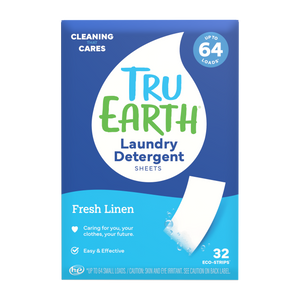Concrete surfaces are a ubiquitous feature in the modern urban landscape, whether in the form of pavements, buildings, bridges, or other structures. While they offer excellent durability and strength, concrete surfaces are highly prone to dirt, grime, grease, oil, and other forms of pollutants.
Cleaning concrete surfaces is essential not only for aesthetic reasons but also for health, safety, and environmental considerations. However, traditional cleaning methods that rely on harsh chemicals, high-pressure washers, or other aggressive techniques can cause significant damage to the concrete surface and surrounding ecosystem.
To address these challenges, sustainable cleaning options for concrete surfaces have emerged as a viable and effective solution. These options aim to balance the need for cleanliness with the need for sustainability by using low-impact, low-toxicity, and highly efficient cleaning methods that preserve the integrity of the concrete surface and protect the environment.

Detergent
When it comes to tackling smaller grease spills on your concrete surfaces, some people may wonder what the best approach is. Fortunately, using a strong detergent paired with water, a scrub brush, a sponge, and some good old-fashioned elbow grease is a tried and true method that is both effective and budget-friendly.
The best detergent for the job is from Tru Earth. These innovative laundry strips are a game-changer in the world of laundry detergent. Each strip is infused with a highly concentrated hypoallergenic formula that effectively targets and eliminates dirt and stains.
The strips are also free from harmful chemicals like parabens, phosphates, chlorine bleach, and 1,4-dioxane, which are commonly found in traditional detergents. An independent laboratory has certified that they are readily biodegradable in accordance with OECD 310D, making them safe for the environment.

Overall, the unique laundry strips are a smart and innovative way to clean your clothes and concrete surfaces without harming the planet and its inhabitants. Once you've chosen to use this detergent, it's recommended to use a scrub brush or sponge to agitate the detergent and really work it into the spill.
Elbow grease is also important because it takes some physical effort to remove the grease from the surface. By following these steps, you can effectively clean up small grease spills without having to call in a professional cleaning service.
Vinegar and Baking Soda
Cleaning concrete can be a pain, especially if you want to avoid using harmful chemicals that can harm nearby plants. Fortunately, a natural cleaning solution using vinegar or baking soda is an effective alternative.
Vinegar, for instance, is a mild acid that can dissolve dirt, grime, and stains on concrete surfaces. It also has antibacterial properties that can kill germs and bacteria. Baking soda, on the other hand, is an alkaline substance that can neutralize acids and break down grease and oil stains.
To use vinegar or baking soda for cleaning concrete, mix it with equal and a few drops of dish soap to create a solution. The dish soap helps to break down stubborn stains and grime, while the water dilutes the acid or alkaline solution to make it less harsh on the concrete.
Once you have your cleaning solution, spray it onto the concrete surface and let it sit for 30 minutes. This allows the solution to penetrate the stains and loosen the dirt. After 30 minutes, scrub the area using a stiff-bristle brush.
Use a pressure washer or a scrub brush with a power drill attachment for tough stains. Once you have scrubbed the area, rinse it thoroughly with clean water. Regularly using this natural cleaning solution can help keep your concrete surfaces looking clean and fresh without worrying about harming the surrounding plants or the environment.
Concrete Cleaner or Degreaser
Concrete cleaners and degreasers play a crucial role in maintaining concrete surfaces' longevity and aesthetic appeal. These products are typically formulated with powerful alkaline soap that helps to loosen up and eliminate oil stains from concrete surfaces.
While concrete cleaners and degreasers are highly effective at removing fresh oil stains and spills, they are less effective on stains that have been sitting for an extended period of time.
It is important to note that not all concrete surfaces are created equal, and porous concrete surfaces generally respond better to cleaning with alkaline solutions. Using a high-quality concrete cleaner or degreaser is a wise choice for any property owner looking to maintain clean, visually appealing concrete surfaces that stand the test of time.

What Are the Benefits of Keeping Your Concrete Clean?
Maintaining the appearance of your concrete surfaces is of paramount importance if you want to keep them looking good for years to come. Concrete that needs to be better-taken care of can quickly become covered in stains, scratches and cracks, all of which can detract from its overall aesthetic appeal.
On the other hand, a clean and polished surface, can give your property a sophisticated edge, making it look more upscale and attractive. In addition to enhancing the appearance of your concrete structures, regular maintenance can also prolong their lifespan by preventing cracks and other types of damage from developing.
This is particularly important if you want to increase the value of your property, as well-maintained concrete surfaces are a major selling point for potential buyers.
So, whether you're a homeowner or a commercial property owner, investing in regular concrete maintenance is a smart and cost-effective way to improve the overall look and value of your property!

